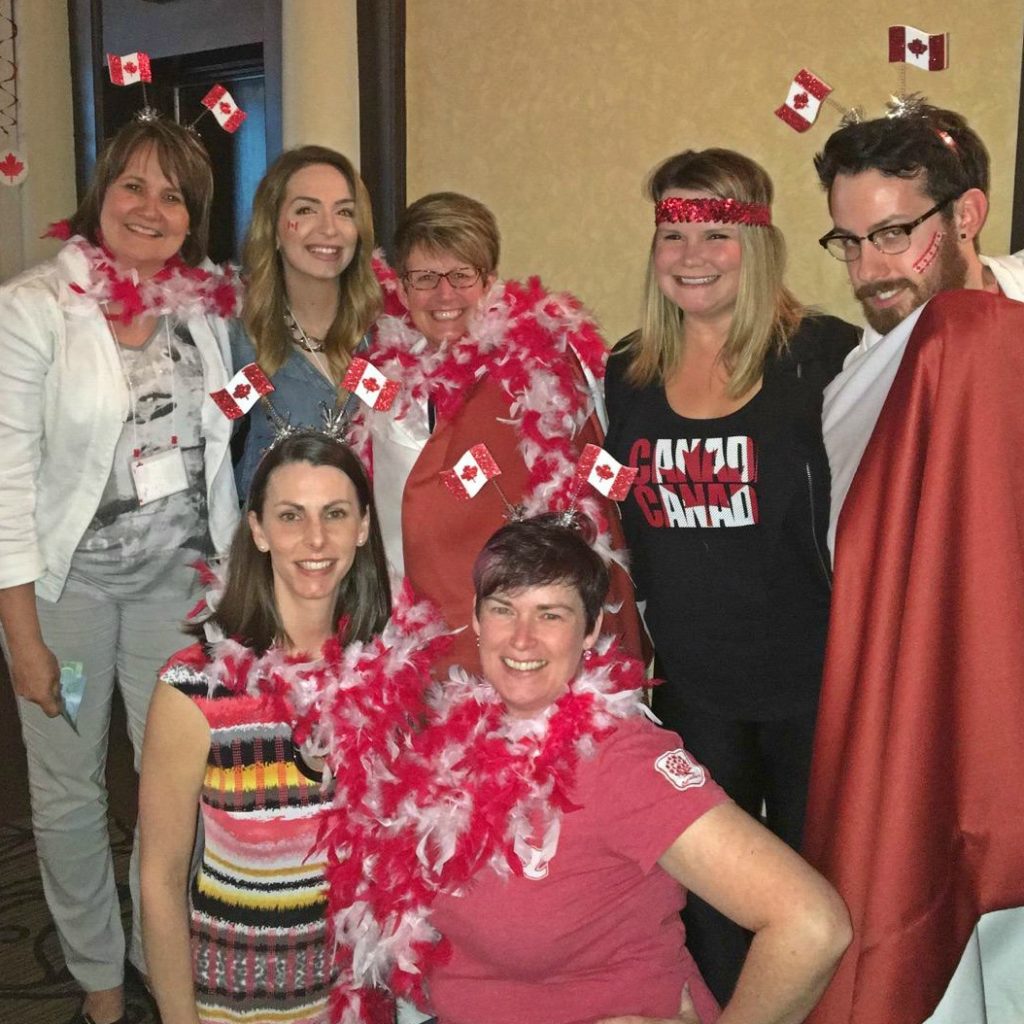Though I’m a newcomer to Recreation Therapy, I’ve attended a number of conferences and networking events in years past. These were mostly business and marketing related (as my work before healthcare was in communications) and they were all very informative. However, I can truly say that I’ve never attended one as genuinely warm, lively and inspiring as the Annual Therapeutic Recreation Ontario (TRO) Conference.
As a current student in Mohawk College’s Recreation Therapy Intensive Program, I have to admit I was intimidated to launch myself into a crowd of TR professionals from across the province, armed with knowing just a handful of people from the Hamilton community. However, I was pleasantly surprised by just how welcomed my fellow classmates, Ryan Laser, Michelle Doidge and I felt; this was in large part due to our incredible Mohawk faculty who introduced us every chance they got. But I think it’s also because when you get a hotel full of individuals in a profession designed to help others and inspire activity, you get some seriously friendly people! I would recommend the conference to any Recreation Therapy student, even if they’re feeling a bit nervous – it’s worth it, and you’ll make great connections.

Aside from networking and meeting some wonderful TRs, I was able to attend several of the education sessions and learn about timely topics in the field. From TR in the foster system and meaningful programming in long-term care, to private TR practice and writing for the TRPR Journal, I came home with a notebook full of new information.
Learning about writing for the TRPR Journal of TRO
Though I thoroughly enjoyed all my sessions and heard fantastic things about the rest, I’ll focus briefly on Kimberly Lyons’ “Sharing Your Experience in the TRPR Journal of TRO”. As a TRO Standard of Practice, research can seem daunting for practitioners in a very hands-on field like TR, especially for newcomers and students like myself. However, we all know how important it is to contribute to our library of evidence-based research, so we can continue developing new programs rooted in strong data and proven outcomes. Kimberly was not only an approachable, captivating speaker, but she made writing for TRPR and contributing to our profession’s body of research actually seem do-able.
The TRPR Journal of course publishes papers on research studies, but they also accept professional practice papers that may simply be about a type of program/intervention or an issue related to TR practice. So, practitioners who are not conducting formal research also have the chance to be published in the journal. Once you submit your paper, Kimberly and her team take you through a two-phase editorial process where they are very hands-on and supportive, and open to questions and feedback throughout. She revealed that she hasn’t had to reject a paper as of yet, which is likely due to how supported and well-coached writers are through the editorial phases. I would highly recommend reaching out to Kimberly and her editorial staff to learn more, and check out Jill Gibson and Joellyn Leblanc’s webinar on what it takes to get to publication within the TRPR Journal of TRO from a writer’s perspective.
In conclusion, the TRO conference is a valuable event to meet fellow professionals, learn about the latest trends in Recreation Therapy, and celebrate our field. Students, I hope to see you in Ottawa on May 30 – June 1, 2018!
